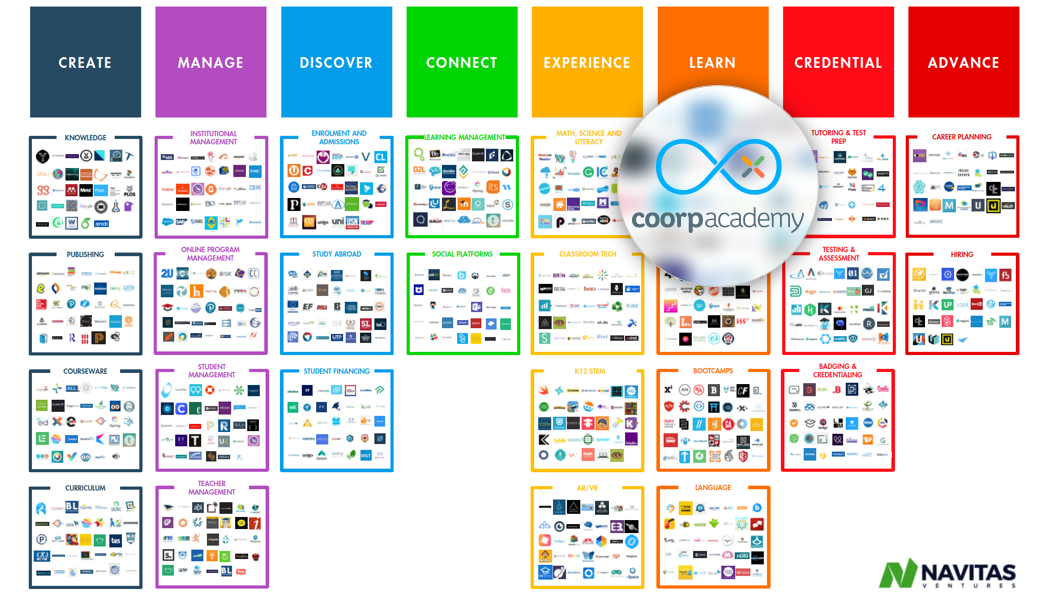By Lamia Kamal-Chaoui, Director, Centre for Entrepreneurship, SMEs, Regions and Cities, OECD.
This article is extracted from the White Paper “Get ready for the Skills Economy“. Coorpacademy and Citizen Entrepreneurs, the association constituting the French G20 YEA delegation, co-edited this exclusive collection of insight papers on education, used as a discussion piece for this summit.
You’ll find in the White Paper articles about how building a learning culture can address employability challenges, academic insights on Learning Sciences and computational thinking, or how the content and the container must collide in a Netflix-like way to provide the most personalized Learning experience. Articles are signed by Corporate Learning Leaders from various organizations and institutions: Accenture, BNP Paribas, Coorpacademy, emlyon Business School, EY, OECD, Swiss Federal Institute of Technology, University of Wyoming…
Starting young: learning entrepreneurship – by Lamia Kamal-Chaoui.
Youth are entrepreneurial! New business creation data across OECD countries for 2012-2016 show that 18-30 year olds were more likely to be working on setting up a new business than their older counterparts (6.6% versus 6.1%), more likely to be setting up businesses in teams of 3 or more, and had a new business ownership rate matching that of adults of over 30 years old (3.5%) (OECD/ EU, 2017).
However, young people face numerous barriers to entrepreneurship, often over and above those faced by their older peers – in identifying opportunities, accessing financing, developing networks, and managing teams. They also often hesitate to start for fear of failure or because they lack the skills (Figure 1). Entrepreneurship education can be a critical support in helping youth to develop an entrepreneurial spirit and obtain the skills needed to become successful entrepreneurs. It is a high-return investment.
Figure 1: Entrepreneurship skills are a greater barrier to business creation for youth
Percentage of population who responded “yes” to the question:
“Do you have the knowledge and skills to start a business?”, Data from 2012-16

Notes: See Figure 3.13 in OECD/EU (2017). Source: OECD/EU (2017) using special tabulations of the 2012-16 adult population surveys from the Global Entrepreneurship Monitor (2017).
Efforts are increasing to build entrepreneurship competencies through formal education …
Courses and other supports to build entrepreneurship skills in schools, vocational education and training providers, and higher education institutions have become increasingly common in the last decade. They focus on issues of perception about the desirability and feasibility of the entrepreneurial action – either as an entrepreneur or an entrepreneurial employee – and developing the ability to cope with failure.
“Young people face numerous barriers to entrepreneurship, often over and above those faced by their older peers – in identifying opportunities, accessing financing, developing networks, and managing teams.”
However, educational science shows us that developing certain attitudes, knowledge and skills is more effective if started with early intervention (Cunha and Heckman, 2010).
In the area of entrepreneurship skills, a change of content, pedagogy, learning outcomes, and assessment strategies can be introduced as the student progresses, with a gradual increase in the extent that a start-up orientation is offered (OECD, 2015). Some countries (e.g. the United States, Ireland, and Denmark) have already introduced such a progressive approach, but in most OECD countries there is still a need for more entrepreneurship education activities at lower levels of education (GEM, 2017).
Spotlight on higher education
Higher education institutions (HEIs) can be great generators of entrepreneurial individuals. To do so, they themselves need to adopt entrepreneurial approaches to entrepreneurship teaching and supporting graduates who are motivated to start up new ventures — particularly with half of young people accessing higher education across the OECD area. According to the Global University Entrepreneurial Spirit Students’ Survey across 50 countries in 2016, 8% of students intended to start a business right after graduation and 30% considered this a likely career option five years after graduation. The OECD and European Commission have developed the HEInnovate guiding framework for HEIs in this area (www.heinnovate.eu). It identifies many good practices, such as giving students the possibility to document the entrepreneurship competencies they have developed in their studies and extracurricular activities, for example with diploma supplements or other certificates.
What are key areas for government action?
Develop a progressive approach at each stage of the education process. Educa- tional curricula and systems should lay the foundations of an entrepreneurial mind-set at early stages of learning.
Support for teachers. Effective entrepreneurship education requires adequate preparation time for teachers, tailored education material, and guidelines that facilitate the collaboration with external partners (OECD, 2015). In many countries, teacher networks have been formed to provide peer support (e.g. the U.S. Network for Teaching Entrepreneurship, NFTE).
Closing gaps in start-up support. Start-up support should be provided for students who are motivated and able to start a business in the near future. This can be facilitated by creating close connections between education institutions and local business support organisations. Furthermore, higher education students should be supported to combine studies and start-up efforts, for example by receiving a special status similar to sport champions.
References:
Cunha F. and J. J. Heckman (2010), “Investing in Our Young People”, in Reynolds, A. J. et al., (eds.), Childhood programs and practices in the first decade of life, Cambridge University Press, New York, 381-414.
GEM (2017), Global Entrepreneurship Mo- nitor Report 2016/2017, published online, www.gemconsortium.org.
OECD (2015), From Creativity to Initiative: Building Entrepreneurial Competencies in Schools. A Guidance Note for Policy Makers, published online, http://www.oecd.org/site/entrepreneurship360/blog/guidancenote-policymakers.html
OECD/EU (2017), The Missing Entrepreneurs 2017: Policies for Inclusive Entrepreneurship, OECD Publishing, Paris, https://doi.org/10.1787/9789264283602-en.


